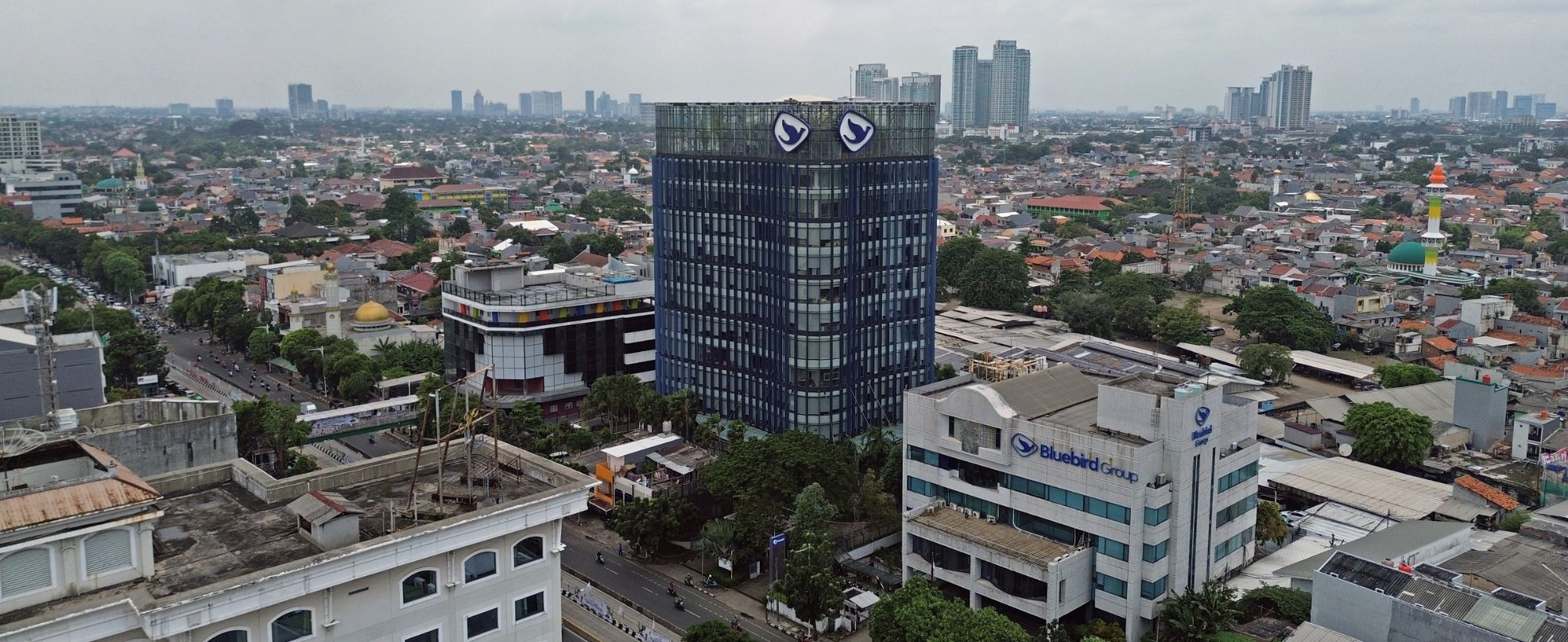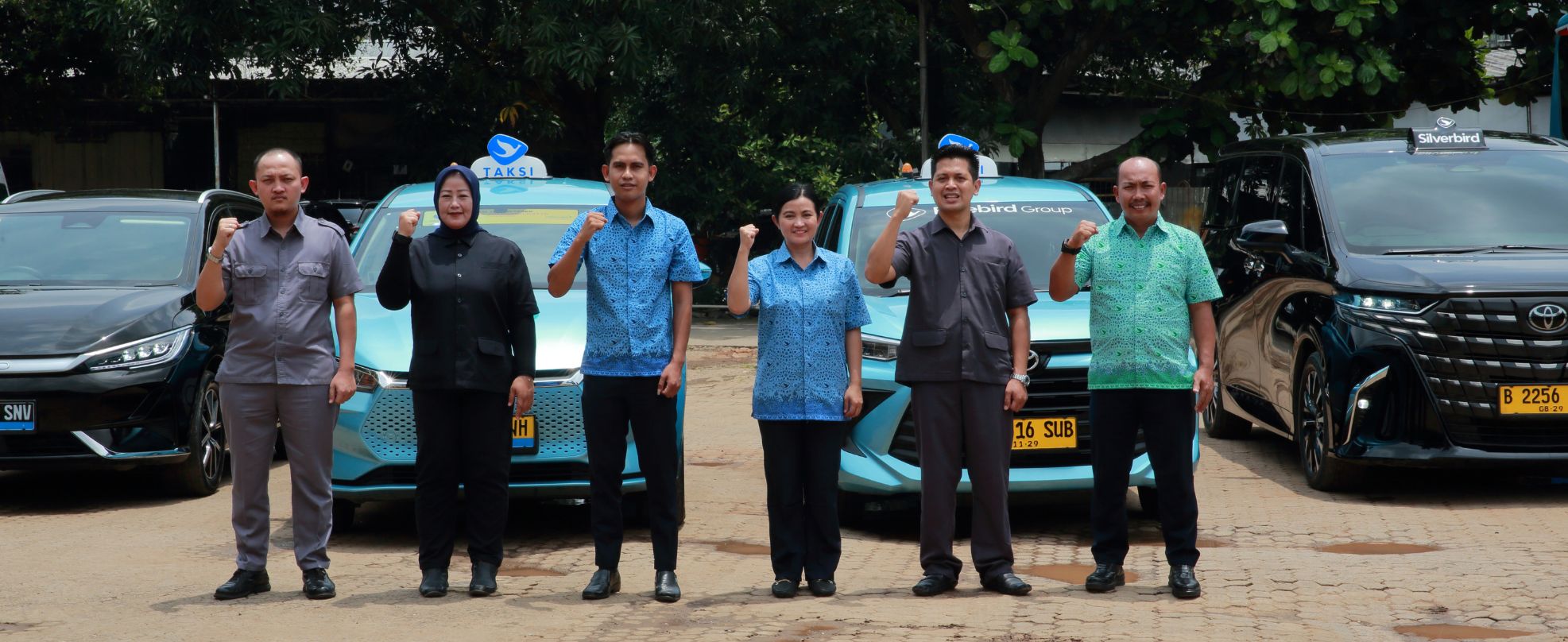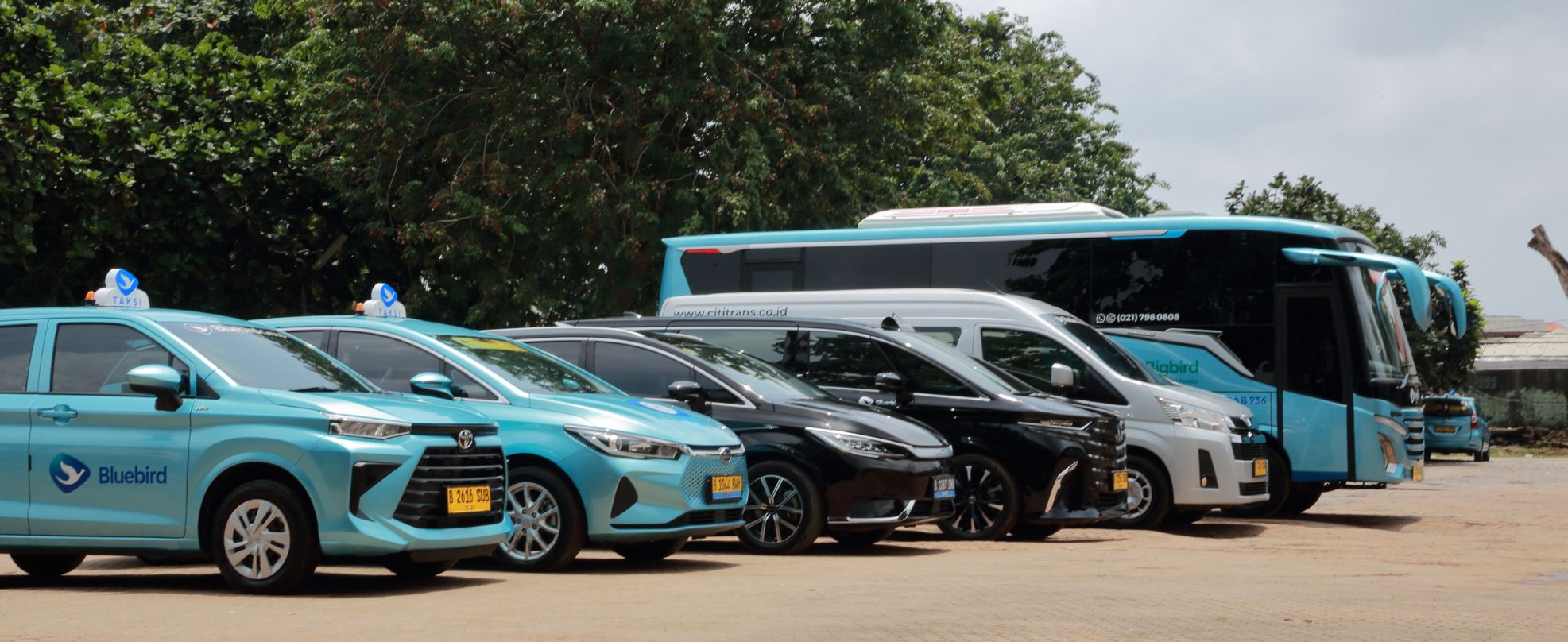Singing praises of Bluebird taxis
Published On 26 Feb 2010

Perhaps the greatest compliment has come from Singapore.
by Bruce Gale, Senior Writers THE STRAITS TIMES, Friday 26 Feb 2010
In November 2008, representatives from the Singapore Taxi Academy, the Taxi Operators Association and various Singapore-based taxi firms visited Jakarta to meet Bluebird executives and learn more about the reasons for the company’s success. Usually, it is the other way around.
PUBLIC transportation in Jakarta is widely acknowledged to be chaotic, uncomfortable and sometimes dangerous. So it is quite a surprise for newcomers to discover that the capital has a taxi service that is second to none in the region.
Bluebird taxis are ubiquitous in Jakarta. Of the almost 30,000 taxis in the capital, about 12,000 are painted in the familiar metallic blue and sport the company’s geese-like logo. Bluebird taxis arrive promptly when booked over the phone, and the company employs drivers who are polite and often competent in basic English. Many passengers can also relate stories of valuable items left in Bluebird taxis being returned to them after they contacted the company.
Private security consultants recommend Bluebird, particularly when travelling around the capital at night. So do some foreign government travel and trade websites. Indeed, the brand has such a peerless reputation in a country so often regarded as offering little more than second- or third-rate products and services that it seems reasonable to ask how it was accomplished. The taxi service began in 1965, when two brothers began a rental car company called Chandra Taxi. The company has been trading under its current name since 1972, when the family matriarch Mutiara Djokosoetono mortgaged the family home in order to finance the purchase of the company’s first 25 taxis. Other transportation services now provided by Bluebird include executive taxi services (Silverbird) and chartered bus services. The company also offers logistic services (including freight forwarding) and runs holiday resorts.
Speaking to The Straits Times earlier this month, company vice-president Sigit Priawan Djokosoetomo said the company owed its success to its commitment to honesty and good service, both to the customer and the drivers it employs. It all sounds like public relations hype. But a study of the company’s history, together with interviews with various Bluebird taxi drivers in Jakarta who had no idea their passenger was a Straits Times journalist, has convinced me that it is basically true.
Like most companies aspiring to create a sense of pride and professionalism among their staff, Bluebird puts its drivers through a basic orientation course to familiarise them with company policies and procedures. There are also regular follow-up briefings at which drivers are encouraged to share ideas and experiences in dealing with unusual situations or difficult customers.
But the real reason for the company’s success seems to me to be the way this ethnic Chinese family- owned company treats its employees. Bluebird maintains an unusual arrangement with drivers under which the latter receive a percentage of the total metered fare. Most other taxi companies in Jakarta and around the region – including those operating in Singapore – impose a flat rental fee instead.
Asked about the policy, Mr Sigit explained that the company felt that its drivers should never be forced to go home empty-handed. But what if the taxi driver avoids using the meter? “We have 12,000 spies,” he replied. Bluebird drivers get rewards if they spot another Bluebird taxi not using the meter. With many Jakartans actively preferring Bluebird taxis over the competition, drivers also have a vested interest in protecting the company’s reputation.
Bluebird maintains 17 depots in Greater Jakarta. Each has its own clinic staffed by doctors – including dentists as well as ear, nose and throat specialists – all of whom are on Bluebird’s payroll. The company also runs its own health insurance which covers each driver’s immediate family. But these are not the only benefits enjoyed by employees. Several drivers The Straits Times spoke to noted that dormitories at the depots also allow those who live outside Jakarta to save on transport costs by working three or four days at a stretch before returning to their families.
For evidence of the success of the corporate culture in changing driver behaviour, Mr Sigit referred to the situation in Bandung about three years ago, just before Bluebird entered the market. At that time, no taxi in the city offered metered service, and all had bad reputations. “We recruited the existing taxi drivers over there… We trained them. And the day they worked for our company, they switched behaviour. They knew that if they cheated, they would be sacked.”
Bluebird’s success in Jakarta has spawned numerous imitators, but none has yet managed to replicate the company’s winning formula. Struggling to remain profitable during the economic crisis of the late 1990s, President Taxi – formerly a market leader – repainted its yellow taxis blue. Today, there are about 19 taxi companies operating in Jakarta and other Indonesian cities that have adopted a similar tactic. Some also display logos similar to Bluebird’s.
But perhaps the greatest compliment has come from Singapore. In November 2008, representatives from the Singapore Taxi Academy, the Taxi Operators Association and various Singapore-based taxi firms visited Jakarta to meet Bluebird executives and learn more about the reasons for the company’s success. Usually, it is the other way around. bruceg@sph.com.sg
 taxi service
taxi service
 car rental
car rental
 shuttle service
shuttle service
 charter bus
charter bus
 Logistic
Logistic
 Advertising Solution
Advertising Solution
 bluebird kirim
bluebird kirim
 corporate solution
corporate solution
 hotel & resort
hotel & resort
 caready
caready
 supporting service
supporting service


